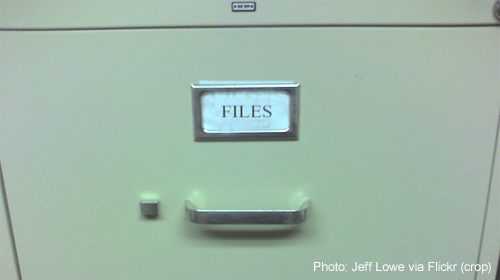U.S. Marshals Seize Local Cops’ Cell Phone Tracking Files in Extraordinary Attempt to Keep Information From Public


A run-of-the-mill public records request about cell phone surveillance submitted to a local police department in Florida has unearthed blatant violations of open government laws, including an incredible seizure of state records by the U.S. Marshals Service, which is part of the Justice Department. Today the ACLU and the ACLU of Florida filed an emergency motion in state court to preserve the public’s right of access to government records.
Over the past several months, the ACLU has filed dozens of public records requests with Florida law enforcement agencies seeking information about their use of controversial cell phone tracking devices known as “stingrays.” (The devices are also known as “cell site simulators” or “IMSI catchers.”) Stingrays track phones by mimicking service providers’ cell towers and sending out powerful signals that trick nearby phones — including phones of countless bystanders — into sending their locations and identifying information.
The Florida agencies’ responses to our requests have varied widely, with some stonewalling and others releasing records. The most recent request went to the Sarasota Police Department, and the fallout from that request has raised red flag after red flag.
RED FLAG #1: The Sarasota Police initially told us that they had responsive records, including applications filed by and orders issued to a local detective under the state “trap and trace” statute that he had relied on for authorization to conduct stingray surveillance. That raised the first red flag, since trap and trace orders are typically used to gather limited information about the phone numbers of incoming calls, not to track cell phones inside private spaces or conduct dragnet surveillance. And, such orders require a very low legal standard. As one federal magistrate judge has held, police should be permitted to use stingrays only after obtaining a probable cause warrant, if at all.
RED FLAG #2: The Sarasota Police set up an appointment for us to inspect the applications and orders, as required by Florida law. But a few hours before that appointment, an assistant city attorney sent an email cancelling the meeting on the basis that the U.S. Marshals Service was claiming the records as their own and instructing the local cops not to release them. Their explanation: the Marshals Service had deputized the local officer, and therefore the records were actually the property of the federal government.
We emphatically disagree, since the Sarasota detective created the applications, brought them to court, and retained the applications and orders in his files. Merely giving him a second title (“Special Deputy U.S. Marshal”) does not change these facts. But regardless, once the Sarasota Police Department received our records request, state law required them to hold onto the records for at least 30 days, to give us an opportunity to go to court and seek an order for release of the documents.
Instead of complying with that clear legal obligation, the local police allowed the records to disappear by letting the U.S. Marshals drive down from their office in Tampa, seize the physical files, and move them to an unknown location. We’ve seen our fair share of federal government attempts to keep records about stingrays secret, but we’ve never seen an actual physical raid on state records in order to conceal them from public view.
RED FLAG #3: Realizing we weren’t going to get hold of the Sarasota Police Department’s copies of the applications and orders anytime soon, we asked the county court if we could obtain copies from its files. Incredibly, the court said it had no copies. The court doesn’t even have docket entries indicating that applications were filed or orders issued. Apparently, the local detective came to court with a single paper copy of the application and proposed order, and then walked out with the same papers once signed by a judge.
Court rules — and the First Amendment — require judges to retain copies of judicial records and to make them available to the public, but the court (and the detective) completely flouted those requirements here.
The ACLU’s emergency motion seeks a temporary injunction preventing the Sarasota Police Department from transferring any more files to the U.S. Marshals, as well as a determination that the police violated state law by sending the stingray applications and orders to the Marshals Service in the first place and an order requiring the police to produce the records.
When the government obtains court authorization to use invasive surveillance equipment, the public should not be kept in the dark. We have open records laws for a reason, but they mean nothing if the government can violate their clear commands at its whim.



